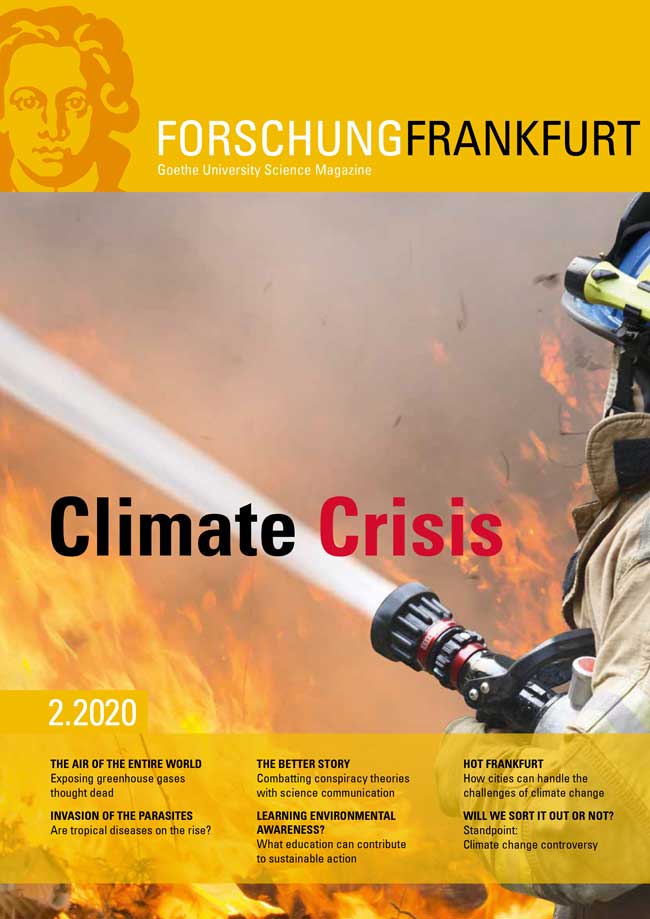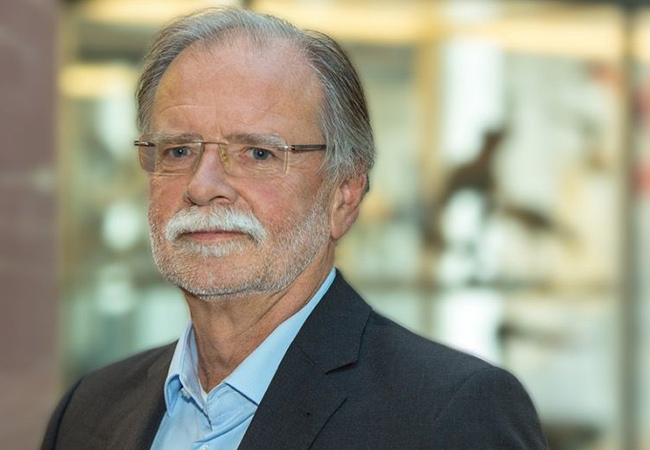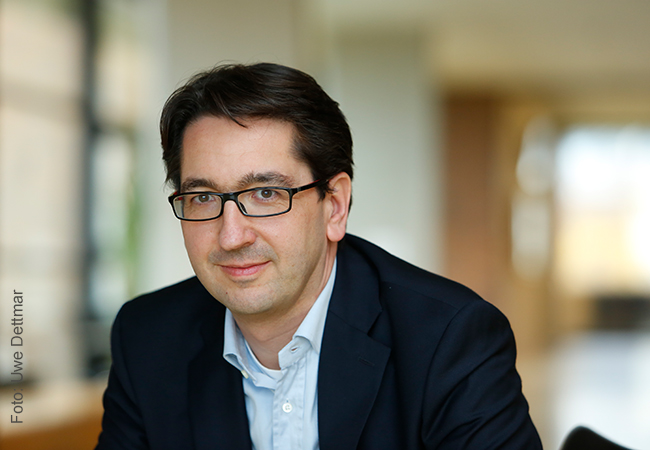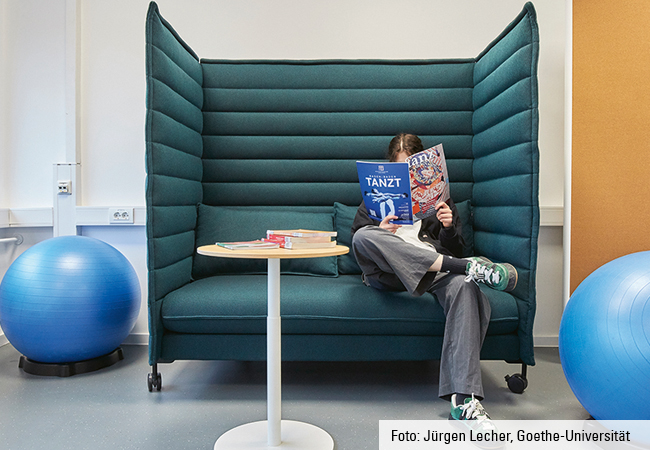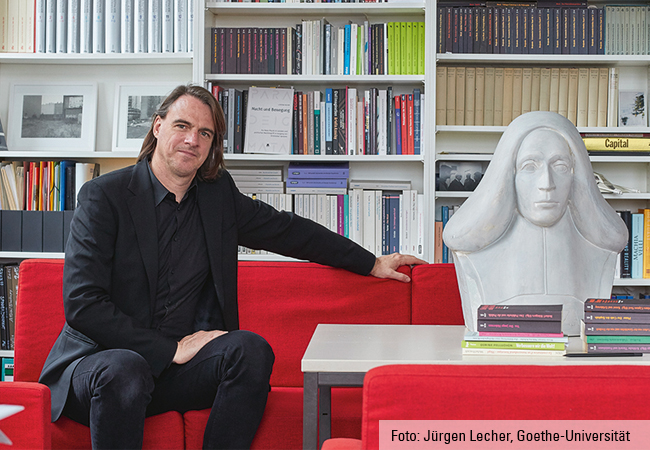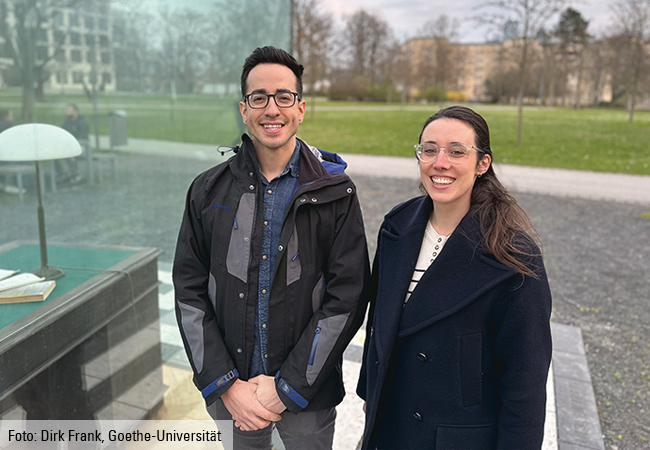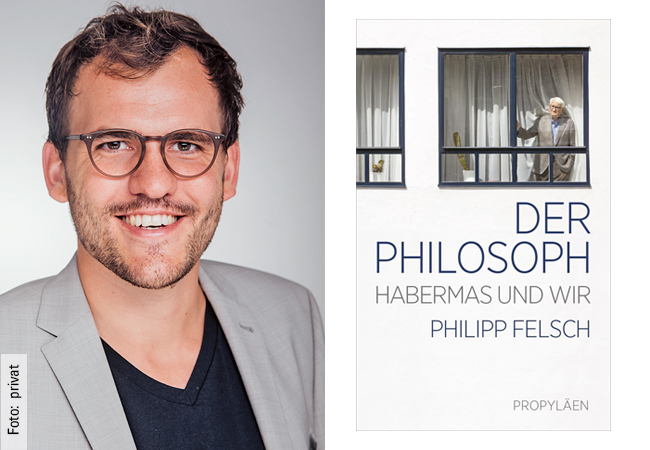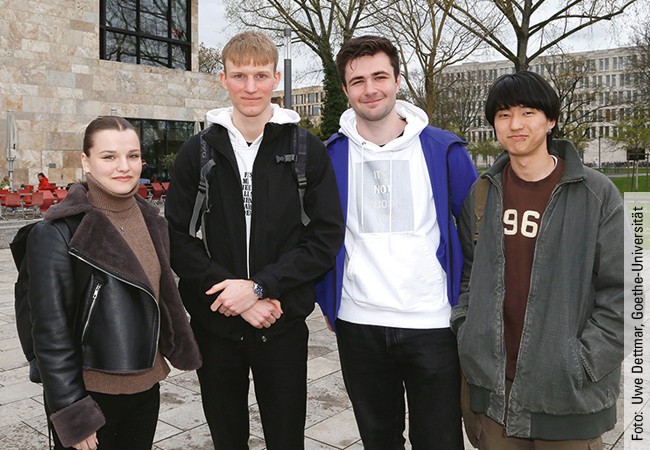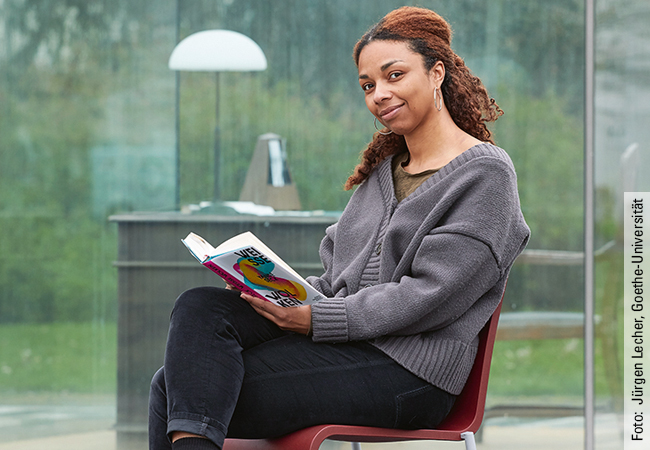According to plan, the World Climate Conference in Sharm el-Sheikh, Egypt, is scheduled to end today, but the world’s governments are still struggling to reach binding agreements and measures that can limit atmospheric warming to 1.5 degrees Celsius compared to pre-industrial times. Two years ago, in Goethe University’s research magazine „Forschung Frankfurt,“ Prof. Volker Mosbrugger and Prof. Joachim Curtius gave their assessment of whether or not we will reach this target set in the Paris climate agreement.
„We will not manage to do this“, commented Professor Volker Mosbrugger two years ago, then Director General of the Senckenberg Gesellschaft für Naturforschung and Professor at the Institute of Geosciences, „that is, at least not within the goals of the Paris Agreement.“
In contrast, atmospheric scientist Prof. Joachim Curtius of the Institute for Atmosphere and Environment said: „I am a climate optimist“ and called for realistic optimism in answering this question.
The argumentations of the two scientists are undoubtedly still valid today and can be read here (No | Yes]
Will we manage to halt climate change and stop global warming at 1.5 °C?
NO
We will not manage to do this, that is, at least not within the goals of the Paris Agreement. We need to differentiate here: We will undoubtedly manage to halt climate change, but only above the targeted 2 °C. And that is precisely the reason why we should, on the one hand, do everything in our power to reduce global anthropogenic emissions of greenhouse gases as quickly as possible (mitigation), but also, on the other hand, focus just as intently on adaptation.
I would like to list four problems by way of example:
1. The trend problem: Atmospheric CO2 concentration has risen continuously since 1960. Depending on the season, it is now between 410 and 420 ppm (about 280 ppm would be normal), and absolutely no change in this trend, as a result, for example, of the IPCC reports or the international climate conferences in Copenhagen or Paris, is anywhere in sight. There is no evidence which suggests that this will change significantly in the next 40 years.
2. The freeloader problem: It is a profoundly human phenomenon: If a good (such as the atmosphere) is freely available, then why should I, as a person or a state, be the one to restrict myself in its use, when others – either the bigger polluters of the atmosphere or those most affected by climate change – should set a good example first? Here too, there is absolutely no evidence that this freeloader problem in the community of nations will be resolved in the near future.
3. The complexity problem: The climate problem is very closely linked with other sustainability issues: That is why we speak of an »Earth system«, where the main components – atmosphere, hydrosphere, biosphere and geosphere – are closely interconnected. For example, burning biomass, that is, woodlands, produces a significant percentage of all anthropogenic CO2 emissions; the increase in atmospheric CO2 leads to ocean acidification and coral mortality. In this complex web of interactions, there are countless conflicting goals which are hard to resolve: Biodiesel is good for climate protection but harmful for biodiversity, climate engineering (e.g. the introduction of large amounts of sulphur dioxide into the stratosphere in order to reduce solar radiation on the Earth) as well as »final storage« of CO2 underground (»carbon capture and storage«) are rejected by the (German) population for safety reasons; a type of agriculture which is better balanced from a climatic and ecological perspective is unenforceable at political level. This situation will not change either.
4. The distribution problem: On a global average, CO2 emissions per capita/year are currently about 4.5 metric tons. However, around three billion people greatly exceed this average (USA: approximately 15 metric tons of CO2 per capita/year, Germany: approximately 8 metric tons of CO2 per capita/year). Four billion people currently produce less than 2 metric tons of CO2 emissions per capita/year (IEA data from 2020 which, however, refer only to energy-related CO2 emissions). That the IPCC’s aspired goal of around two metric tons of CO2 per capita and citizen can be achieved in due time – with this unequal distribution of CO2 emissions per capita/year and the problems 1 – 3 described above – is indeed highly unlikely.
What is possible in theory and with models is simply endlessly more difficult in practice. Nevertheless, there is no question about it: There is a pressing need for action! After all, the latest models estimate that we will have to resettle between 150 and 630 million people by the end of this century due to rising sea levels induced by climate change, depending on how CO2 emissions develop. We should therefore work hard not only on mitigation but also on adaptation.
The author Volker Mosbrugger, born in 1953, studied biology, marine biology and chemistry at the University of Freiburg and in Montpellier, France, and earned his doctoral degree in Freiburg in 1983 with a thesis in the field of palaeontology. He completed his post-doctoral degree (Habilitation) at the University of Bonn in 1989, was professor at the Department of Geosciences of the University of Tübingen from 1990 to 2005 and then became director general of the Senckenberg Research Institute and Natural History Museum and professor at the Department of Geosciences of Goethe University. His main research interests are the evolution and constructional morphology of land plants, the evolution of terrestrial ecosystems and terrestrial palaeoclimatology. Studying the impact of climate change and the subsequent loss of biodiversity on humans and the Earth system is his main concern. Professor Mosbrugger has received numerous distinctions, including the Gottfried Wilhelm Leibniz Prize of the German Research Foundation and an honorary doctorate from the University of Lyon.
YES
I am a climate optimist. Climate change poses a huge challenge, it is a task for the whole of humanity – and it will take more than one Hercules or one Greta Thunberg to prevent a catastrophe from developing. It will take all of us. Will we together, will our global society be able to master this task? I call for realistic optimism in answering this question. Only with optimism will we all be able to find the strength and inner drive – despite all obstacles, constraints, habits, comforts and our weaker selves – to change course quickly enough. And I am firmly convinced: We can do it!
Climate protection has become a central task: What makes me so optimistic? A few facts: Between 2010 and 2019, the United Kingdom managed to reduce its greenhouse gas emissions by 29 per cent. In the summer of 2020, China announced for the first time that it would be carbon-neutral by 2060. In many places, solar power is meanwhile less expensive than electricity generated from fossil fuels – and this without subsidies. Nowadays, even CEOs no longer regard sustainability as a troublesome side issue but as a central task that also offers huge opportunities for companies. The first to deliver environmentally friendly, sustainable and climate-neutral concepts, technologies and business ideas will reap the rewards. By contrast, those who persist with fossil technology will not survive the next 20 years.
Enormous increase in knowledge: At the present time, 80 per cent of global energy production is based on fossil fuels, and global CO2 emissions have risen by 63 per cent in the last 30 years. These are two facts that make me pessimistic. In these 30 years, however, our knowledge about climate change and the protective measures required has multiplied. All strata of society and not just experts and environmental activists are now taking them seriously. With the 1.5 °C target, the Paris Agreement has set a reasonable limit, one that Fridays for Future everywhere is vehemently calling for.
We are already feeling the consequences: The consequences of climate change already predicted long ago are indeed occurring more and more frequently and causing increasingly serious damage. And this not only in far-off countries. Instead, we are seeing horrendous damage to our own forests right on our doorstep and experiencing heat waves at first hand. We are fully aware that forest fires, such as those that raged in Australia, Siberia and California this year, will strike even more dramatically with each further tenth of a degree that global warming increases. If we keep these images in mind, we will succeed in turning knowledge into action.
Instruments are in place: The necessary instruments have been developed over the past years: Carbon pricing systems and emissions trading, which is now finally working and having an impact. Technical solutions to replace combustion engines, coalfired power plants, oil and gas heating, sustainability concepts for transport and agriculture and above all the readiness among a broad majority of the population to tackle the problem resolutely and collectively selfimpose the regulations needed to reduce emissions. We still have a long way to go, and gigantic efforts are necessary, but I am convinced that in 20 to 30 years’ time the use of fossil energy will be globally outlawed just like the production of CFCs is today.
Anyone who has children understands his or her own responsibility. We must ensure that their future is not severely constrained by our overuse of the atmosphere and the biosphere. We also understand that their future prospects are not limited to material prosperity, but that we must do a lot more to protect biodiversity, climate and the environment.
The author Joachim Curtius, born in 1969, studied physics at the University of Heidelberg and wrote his doctoral thesis at the Max Planck Institute for Nuclear Physics in Heidelberg, where he conducted research into sulphuric acid in the atmosphere and the condensation trails of jet aircraft. After some time as a post-doctoral researcher in Heidelberg and at the Aeronomy Laboratory of the National Oceanic and Atmospheric Administration NOAA in Boulder (Colorado, USA), he joined the Institute of Physics at Johannes Gutenberg University Mainz (JGU). In 2007, he was appointed as professor for experimental atmospheric research at the Institute for Atmospheric and Environmental Sciences of Goethe University. His main research interests are the study of aerosols, ions, ice nuclei and trace gases in the atmosphere, aerosolcloud interactions, aircraft emissions and the influence of aerosol particles on the climate. Joachim Curtius is a recipient of the Otto Hahn Medal of the Max Planck Society. He is actively involved with Scientists for Future, among others.


